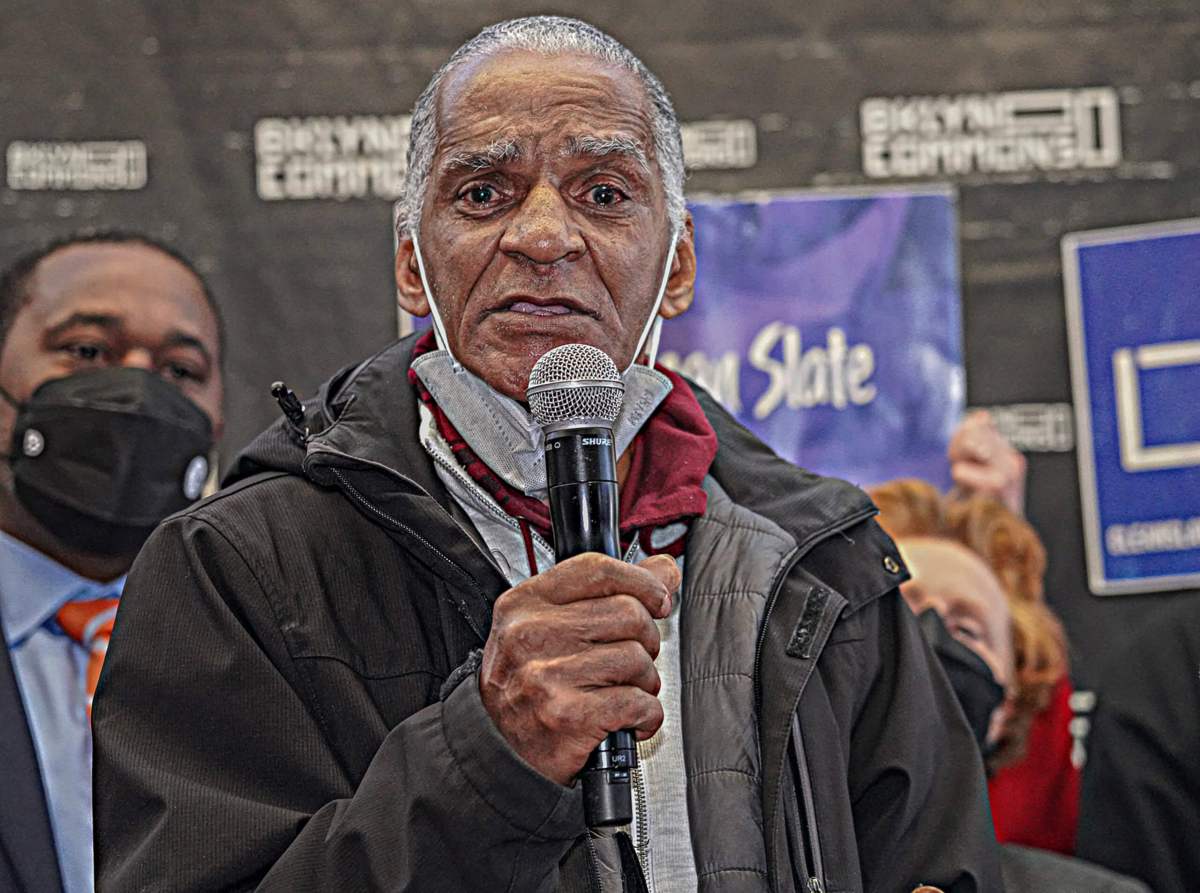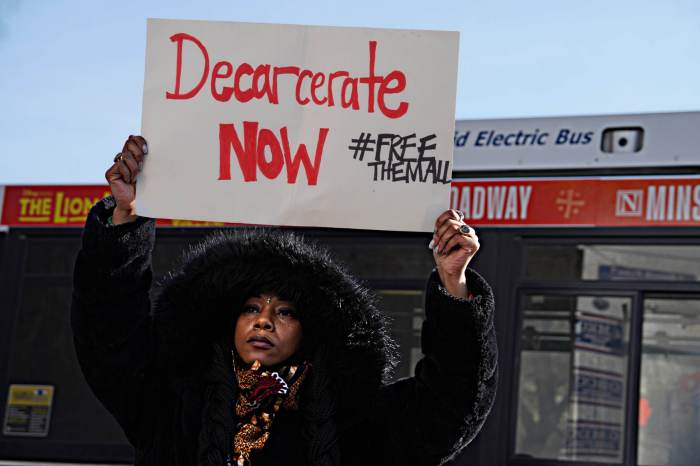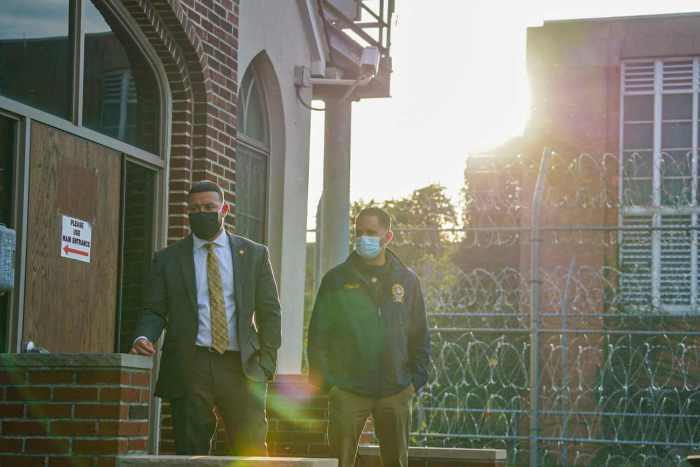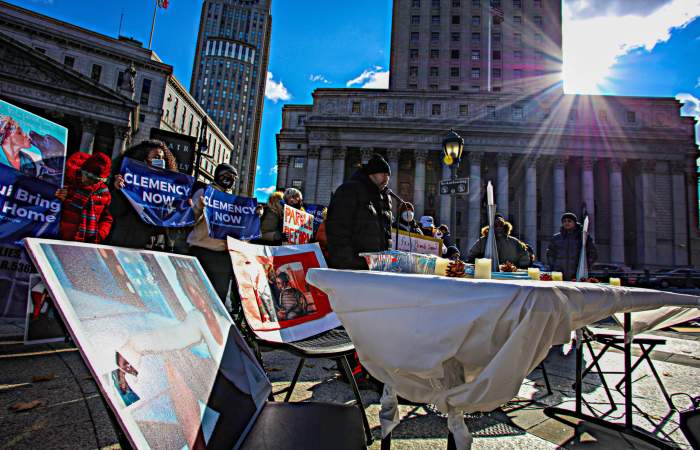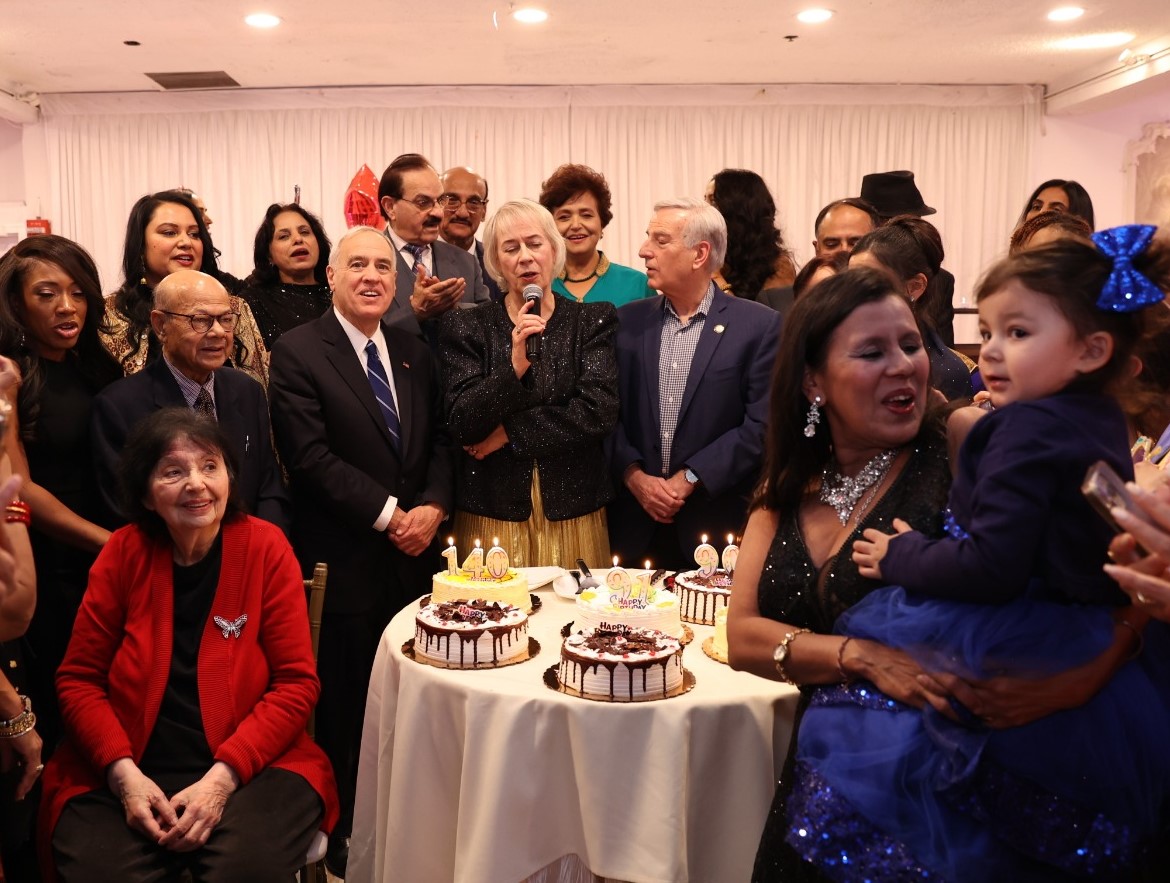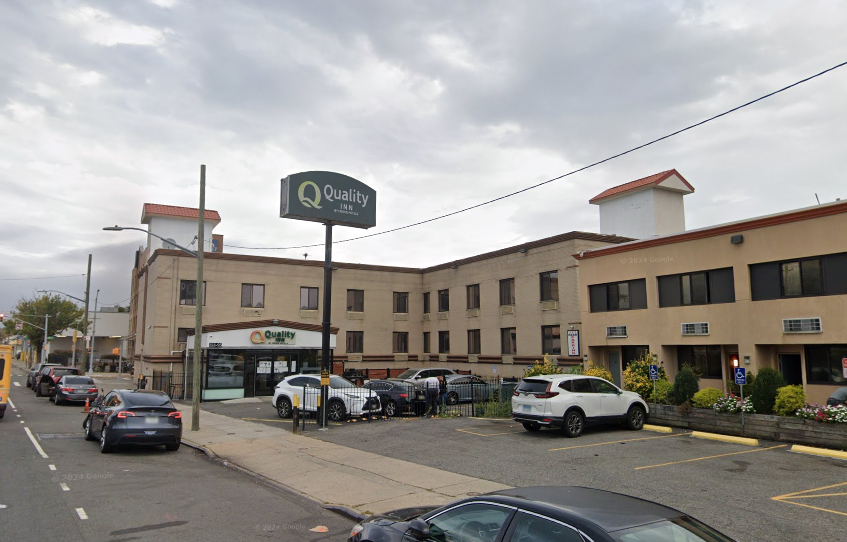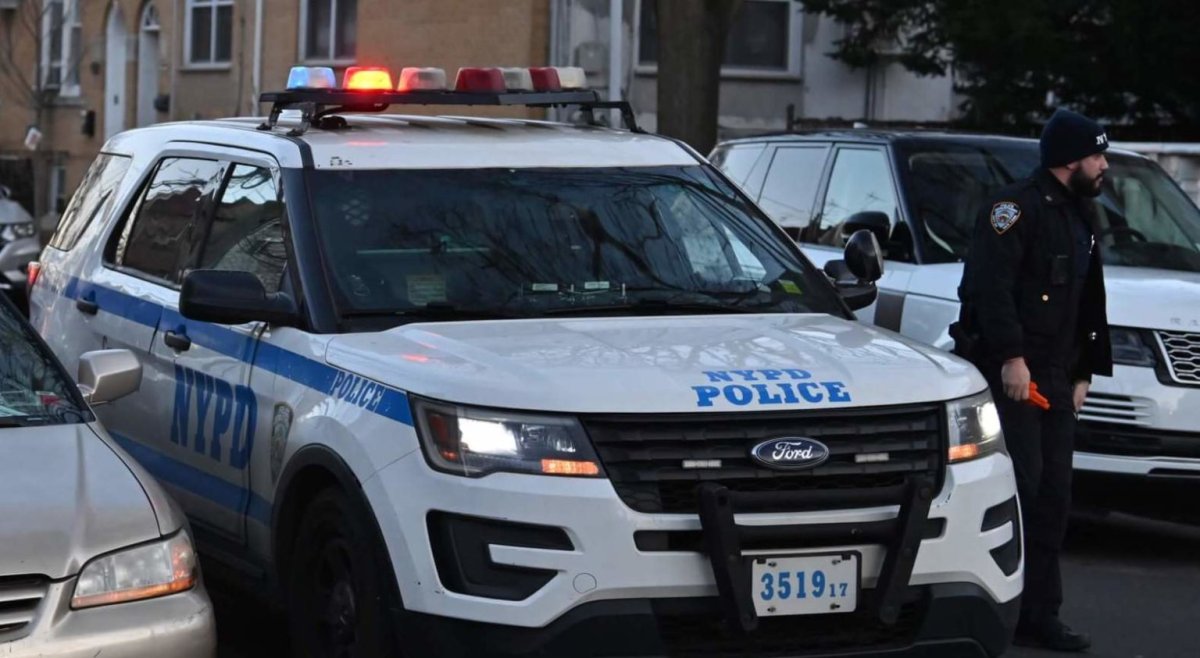Sometimes all a person needs is a second chance, criminal justice advocates and elected officials argued in Brooklyn Sunday as they made an emotional stand to support passage of the Clean Slate Act.
Gathering within the second-floor hall of the Brooklyn Commons located on 495 Flatbush Ave. and organized by Clean Slate New York, elected officials and the directly impacted spoke in support of those who have served their time but now face insurmountable obstacles while trying to survive on the outside world decades after committing a crime.
According to those rallying in support of the formerly incarcerated, New Yorkers with conviction records struggle to obtain work after having completed their sentences due to what the group cited as discrimination in the job market.
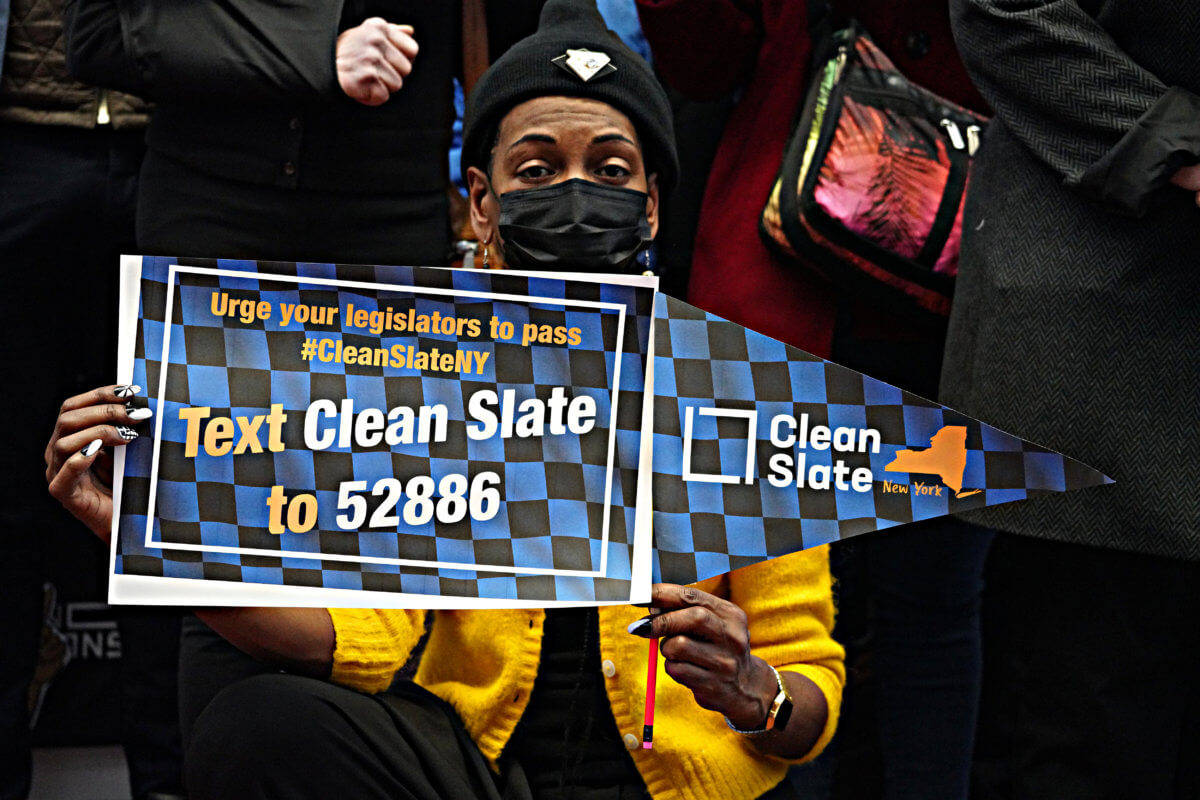
“We are here this morning to put the proverbial nail in the coffin of perpetual punishment and justice for the more than 2 million New Yorkers who have been economically sidelined because of old convictions records. New Yorkers with old conviction records who’ve completed sentences continue to be punished, continue to be shackled, and perpetually excluded from our state’s economy,” said Marvin Mayfield, Center for Community Alternatives.
Mayfield listed the numerous families and communities who suffer when federal funds are being denied to previously incarcerated individuals, such as housing, employment, and education. He believes that with the passage of the Clean Slate Act, which would seal conviction records, will provide individuals who’ve served their time a fair opportunity to start again.
“This legislation will make New York fair for everyone and give everyone economic opportunity to compete and to thrive in New York State,” Mayfield said.
David Delancey, formerly incarcerated leader with Exodus Transitional Community, never thought that a mistake he made at 17 years old would follow him for the rest of his life.
Arrested in 1979, Delancey served over two decades in prison and since then has been trying to make his way in society. Now, almost 60, the sins of his past continue to hang over him like a dark cloud that prevents him from creating a new, better life for himself.
“I thought it was over. I thought that the mistake that I’ve made, that I wasn’t going to be defined by my worst moment, that I would be accepted as the changed person that is coming back into my community,” Delancey said. “I found out that no, you may not be forgiven. You’re not getting a second chance that the mistake you made at 17 years old, even though now you are getting ready to turn 60, still exists.”
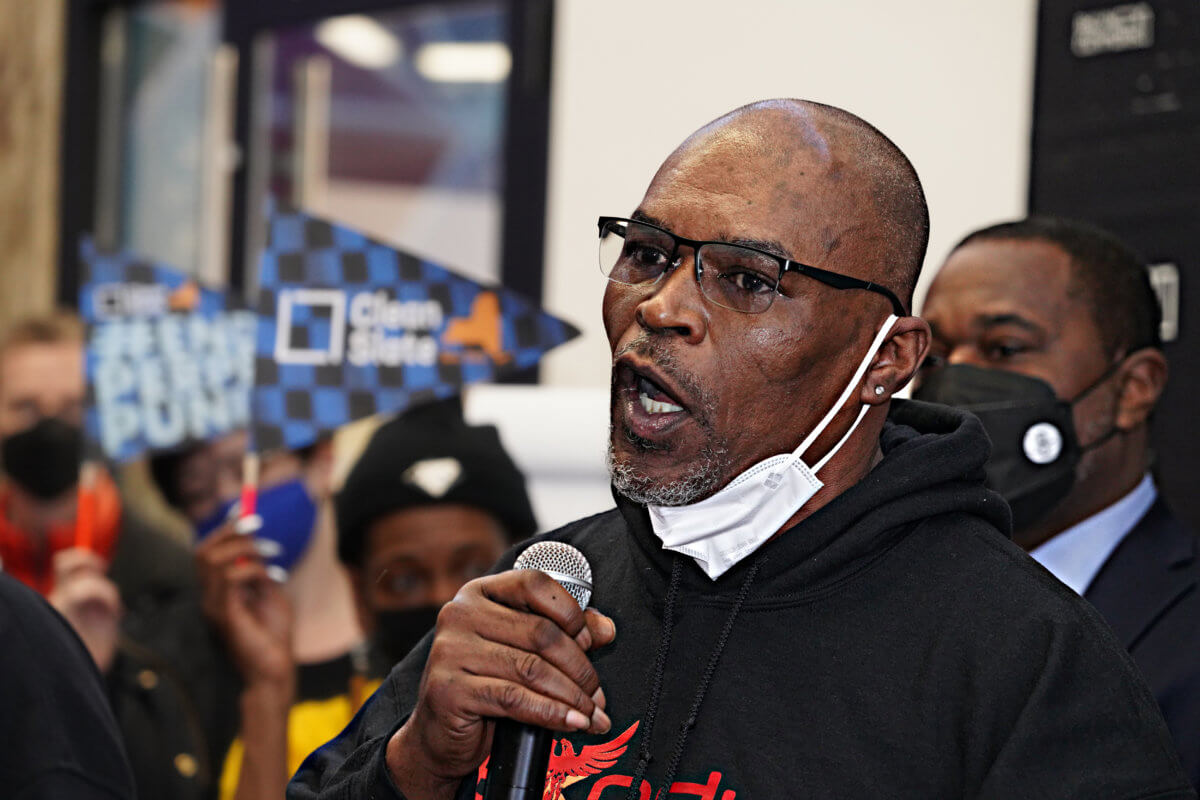
Delancey shared how he submitted over 40 work applications. He was told he was a good candidate over and over again, but once a background check occurred, he was denied the position.
“I found myself not being able to find a place to stay. I found myself having to go into the bathroom and cry away from my family. So that my kids wouldn’t see the struggle that I was going through. So that my kids wouldn’t look at me and say what kind of man is dad, you can’t even give us a place to stay. Why? Because my criminal record is still being held against me with something that happened when I was 17 years old,” Delancey said.
Clean Slate New York also stated that New York collectively loses $2 billion in wages annually since formerly incarcerated individuals are prevented from entering the workforce, which hurts economic growth and shrinks tax revenue. Those who serve time in prison lose an average of $484,400 in earnings over their lifetime.
“If you truly care about public safety. If you’re interested in real solutions, not just headlines, but solutions, than clean slate can’t wait. Think about the hypocrisy in our system. That says go out and get an education. Go to college, apply for financial aid. Make something of yourself, except if you have a conviction,” Brooklyn state Senator Zellnor Y. Myrie said.
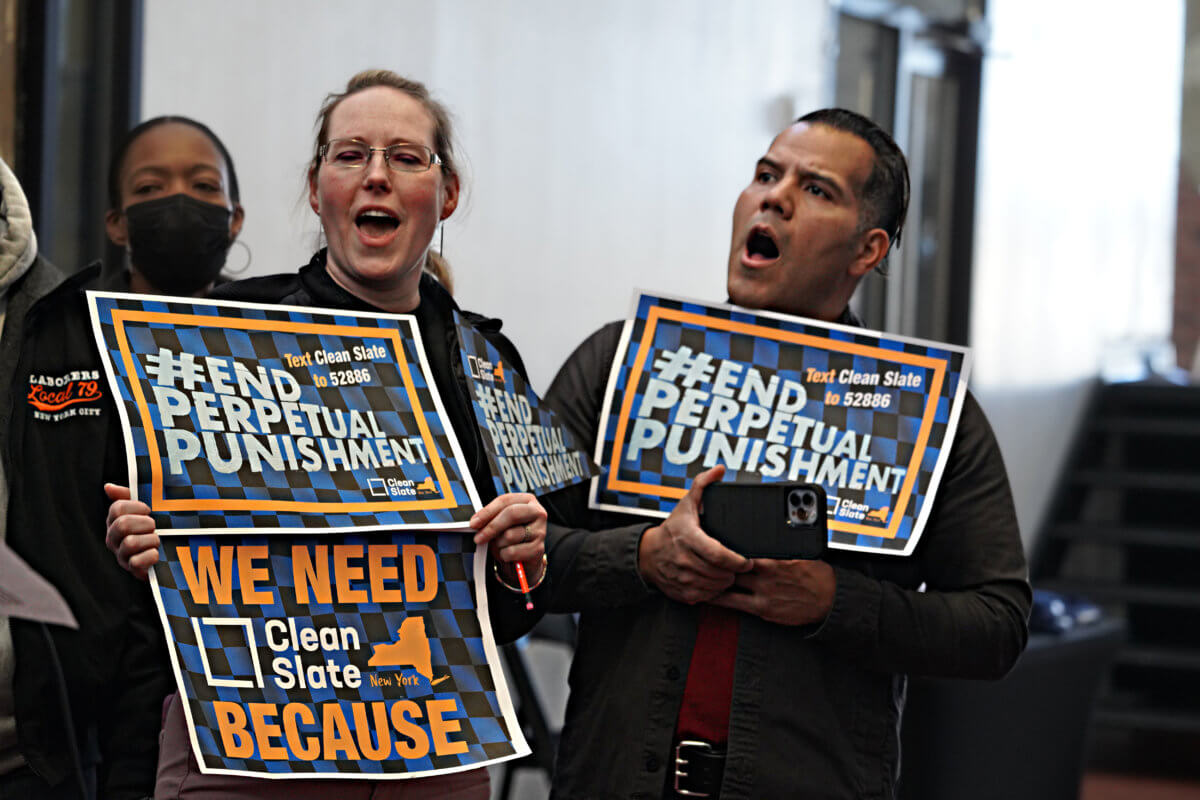
After Senator Myrie’s speech, chants rang out amongst attendees stating, “Clean slate, can’t wait!”
Gregory, a formerly incarcerated individual, was overcome with anger and grief, sharing how a crime he committed in the 1980s has altered the trajectory of his life, despite serving his time.
“Clean Slate is a bill that must be passed. Why? Because of myself and millions of others, we try to exist and we want to live,” Gregory said. “This bill should have been passed years ago! There are so many people stuck behind bills, little kids are suffering, they’re not old enough to work but they are shuffled because their parents can’t get a job because they made a mistake when they were young. Stop judging us by our mistakes.”
Advocates are pushing for the bill to be passed and included in New York State’s FY 2023 budget, which will be finalized by lawmakers in the incoming weeks.



